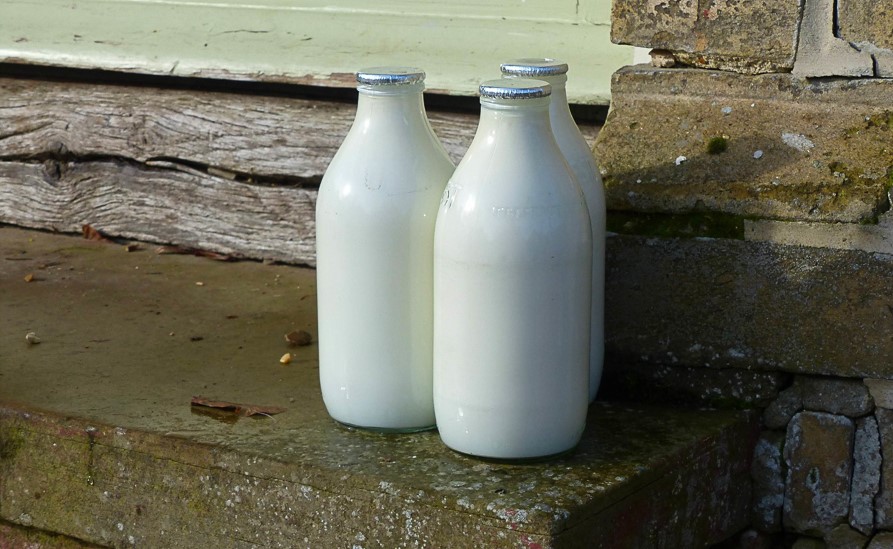Our Thinking Thu 23rd November, 2017
Could the milkman herald the next wave of disruption?
In my last post, I looked at how pervasive digital disruption has become – and made the case for proactive transformation efforts to stay ahead of the competition. But where will the next wave of disruption hit?
Might it be the burgeoning Subscription Economy, which has recently seen the hugely successful Dollar Shave Club – a direct to consumer subscription service for razors and other bathroom products – acquired by Unilever for $1BN?
Remember the milkman?
One of the oldest subscription businesses in the UK is the milkman, who would regularly deliver fresh milk, left by your front door each day (apart from Sundays). Your ‘milkie’ would also collect your empty glass bottles so they could be taken back to the dairy, washed and reused. Your order would be via a handwritten note, left by the door. The convenience was hard to beat.
What did beat it, of course, was the supermarket, and changes in technology that allowed supermarket-purchased milk to stay fresh in your fridge for up to a week. Supermarket scale meant greater leverage to negotiate price with the dairies, and milk became a loss leader in the supermarket price war. The milkman found himself disrupted.
What goes around…
Once again our habits are changing, and the subscription model appears to be back in a big way. And the wily old milkman is taking advantage.
In Ireland, Mymilkman.ie puts you in touch with a national network of milkies. You can change, edit and pause orders using your online account, and there’s a milky mobile app available too. And in the UK, the national trade association for the British dairy supply chain, says 2016 saw the first upturn in doorstep delivery for over 20 years. Seeing a shift in customer needs, an industry is listening, adapting and starting to grow – potentially disrupting its disruptor.
More than milk
The array of goods now available via subscriptions is growing by the day. I haven’t bought bacon or razors from a shop in over a year now, and I haven’t bought new music or video in five years. Some examples of my personal subscriptions:
- Cure and Simple – delivering artisan bacon by post
- Sterling Shave Club – delivering razors once a month
- Spotify – streaming my music
- Netflix and Amazon Video for TV and films
And of course, my family and I support our local milkman too!
Subscription models shift the emphasis away from paying per product. To succeed in the Subscription Economy, companies must be able to manage a direct, complex, responsive, multi-channel relationship with their customers.
Customers are absolutely key in this relationship, of course (as they always are). Rather than putting the focus of the business on the “product” or the “transaction,” Subscription Economy companies live and die by their ability to focus on the customer. This is because the formula for growth is focused on monetising long-term relationships, rather than shipping products.
Threats – or opportunities?
Looking into the future, connected appliances could monitor when supplies run low, calling on subscription services to automatically restock.
These could potentially leverage Blockchain technologies (incidentally, here’s a great article by John Corr on what is so disruptive about Blockchain), bypassing established banking networks (more disruption!). Perhaps the milk float will be replaced by other disruptive delivery mechanisms – milk bottles in the back of a vacant Uber? Orange juice and fresh eggs via a Deliveroo bike?
Companies looking to take advantage of these developments are collaborating with startups, or establishing their own innovation labs, incubator and accelerator programmes. They’re recruiting digital talent, ensuring focused investment, and being brave enough to reinvent themselves – potentially even kill existing business models.
Barclays has established its RISE open innovation programme, and recently opened a seven-storey RISE building in Shoreditch, London. This hub is at the heart of the FinTech community; RISE is actively trying to build new connections by offering space for rent to startups, investors and thought leaders.
It also runs the Barclays Accelerator in partnership with TechStars, a 13-week programme designed to accelerate start-ups with access to and guidance from key decision makers and leaders across the bank who are looking for innovative solutions. Mentoring is provided from leading entrepreneurs and FinTech industry experts, as well as up to $120,000 investment from TechStars.
Elsewhere, Telefónica has its well established Wayra start-up accelerator programme, a network of business accelerators with presence in Europe and Latin America (with 11 hubs located in Brazil, Argentina, Colombia, Chile, Peru, Mexico, Venezuela, Spain, the UK and Germany). Wayra provides financing, mentoring, unique workspace, a global network connection, networking between entrepreneurs and investors and the possibility of your product reaching customers all over the world. In the UK, it offers £34,000 of direct investment into your start-up as well as office space.
Don’t wait – act
Those reacting too late will wait until disruption has taken hold, due to complacency, fear or a lack of knowledge. They will be too focused on the short term, finding the prospect of transformation too difficult, a consequence of poor leadership and myopia. Dan Schulman, CEO of PayPal says “The biggest impediment to a company’s future success is its past success.”
The Subscription Economy requires a shift in focus. How many subscribers are out there? What is their value? What are the cross-sell and upsell opportunities? Profitability? What do customers want?
Success in the Subscription Economy requires constant thought about the subscription experience and how it can be improved. It’s all about the relationship. There’s a lot to be learned from those halcyon days, when your day began with the gentle sound of fresh pints clinking outside your door.



